
Ram Jhula: The Spiritual Gateway of Rishikesh
Ram Jhula is a suspension bridge that stretches across the Ganges River in Rishikesh, India. This iconic structure is not just a means of crossing the river; it is a symbol of the spiritual essence that permeates the area. Built in the 1980s, the bridge connects the bustling neighborhoods of Swarg Ashram on the eastern bank and Sivananda Nagar on the western side. The area is a magnet for spiritual seekers, yoga enthusiasts, and tourists alike. As you walk across Ram Jhula, you'll be treated to breathtaking views of the Ganges flowing beneath, flanked by lush green hills. The bridge itself is often crowded with pedestrians, cycles, and even cows, making for a vibrant and bustling atmosphere. The local markets on either side of the bridge offer an array of items from spiritual books to traditional Indian attire, making it a shopper's delight. The area surrounding Ram Jhula is home to several ashrams and temples, most notably the Parmarth Niketan Ashram, which is famous for its evening Ganga Aarti. This spiritual ritual involves the offering of lamps to the river, accompanied by chants and music, creating an unforgettable experience. Nearby, you can also visit the Beatles Ashram, where the famous band stayed in the late 1960s, contributing to the global appeal of this serene town. Whether you are here for spiritual rejuvenation, yoga, or simply to soak in the serene beauty of the Ganges, Ram Jhula offers a unique blend of spirituality and local culture that is hard to find elsewhere.
Local tips in Ram Jhula
- Visit early in the morning or late in the evening to avoid crowds and enjoy a peaceful walk.
- Don't miss the evening Ganga Aarti at Parmarth Niketan Ashram for a spiritually uplifting experience.
- Wear comfortable footwear as you will be walking a lot and the paths can be uneven.
- Carry some cash as many small vendors and shops may not accept cards.
- Be cautious of monkeys on the bridge; they can be quite mischievous.
Ram Jhula: The Spiritual Gateway of Rishikesh
Ram Jhula is a suspension bridge that stretches across the Ganges River in Rishikesh, India. This iconic structure is not just a means of crossing the river; it is a symbol of the spiritual essence that permeates the area. Built in the 1980s, the bridge connects the bustling neighborhoods of Swarg Ashram on the eastern bank and Sivananda Nagar on the western side. The area is a magnet for spiritual seekers, yoga enthusiasts, and tourists alike. As you walk across Ram Jhula, you'll be treated to breathtaking views of the Ganges flowing beneath, flanked by lush green hills. The bridge itself is often crowded with pedestrians, cycles, and even cows, making for a vibrant and bustling atmosphere. The local markets on either side of the bridge offer an array of items from spiritual books to traditional Indian attire, making it a shopper's delight. The area surrounding Ram Jhula is home to several ashrams and temples, most notably the Parmarth Niketan Ashram, which is famous for its evening Ganga Aarti. This spiritual ritual involves the offering of lamps to the river, accompanied by chants and music, creating an unforgettable experience. Nearby, you can also visit the Beatles Ashram, where the famous band stayed in the late 1960s, contributing to the global appeal of this serene town. Whether you are here for spiritual rejuvenation, yoga, or simply to soak in the serene beauty of the Ganges, Ram Jhula offers a unique blend of spirituality and local culture that is hard to find elsewhere.
Iconic landmarks you can’t miss
Ram jhula
Experience the enchanting beauty and spiritual essence of Ram Jhula, the iconic bridge in Rishikesh, connecting hearts and souls by the sacred Ganges.

Parmarth Niketan Ashram
Discover the spiritual essence of Rishikesh at Parmarth Niketan Ashram, a serene retreat for yoga, meditation, and cultural immersion along the Ganges.

Lakshman Jhula
Experience the enchanting beauty and spiritual significance of Lakshman Jhula, a must-visit destination in Rishikesh, India, where adventure meets tranquility.

Ram Jhoola Ganga Ghat
Discover the tranquil beauty and spiritual essence of Ram Jhoola Ganga Ghat, an enchanting riverside gem in Rishikesh, India, steeped in culture and adventure.
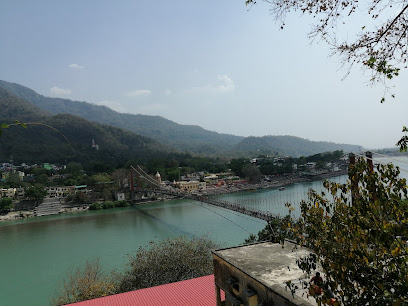
Lakshman Jhula Ghat
Discover the spiritual charm and breathtaking views of Lakshman Jhula Ghat, a must-visit destination in the heart of Rishikesh, Uttarakhand.

Rishikesh Ganga Arti Purnanand Ghat Janki Jhula
Discover the spiritual heart of Rishikesh at Purnanand Ghat, where the Ganga Arti illuminates the sacred river in a mesmerizing celebration of faith.
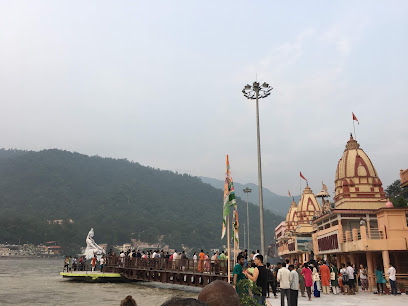
Ramjhula View Point
Experience tranquility and breathtaking views at Ramjhula View Point in Rishikesh, a must-see destination for every traveler seeking nature and spirituality.
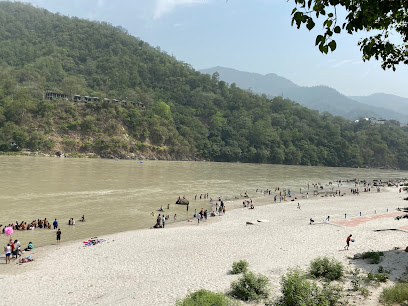
Peaceful place to sit with Ganga
Experience tranquility by the Ganges at this peaceful retreat in Rishikesh, a perfect blend of spiritual ambiance and natural beauty.
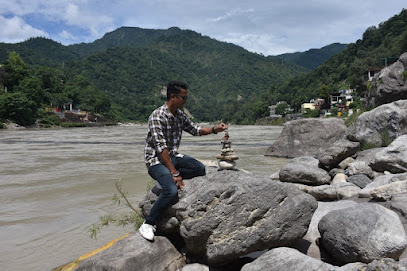
Prachin Shri Hanuman Mandir Ghat
Experience the serene beauty and spiritual essence of Prachin Shri Hanuman Mandir Ghat in Rishikesh—where the Ganges meets divine tranquility.
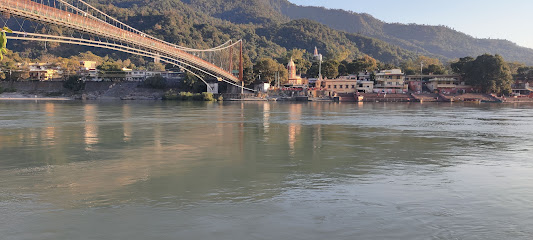
Ganga tat
Discover tranquility at Ganga Tat in Rishikesh, where the sacred Ganges flows and spirituality thrives amidst breathtaking natural beauty.
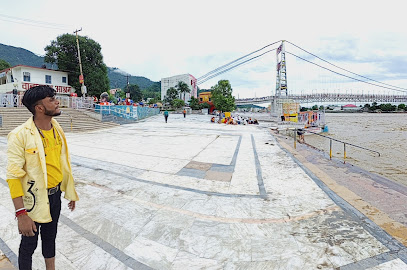
Unmissable attractions to see
Triveni Ghat Rishikesh
Experience tranquility and spirituality at Triveni Ghat, a beautiful spot along the Ganges River in Rishikesh, perfect for meditation and cultural immersion.

Ram jhula
Experience the tranquility and spiritual essence of Ram Jhula, Rishikesh's iconic suspension bridge over the Ganges River.

Parmarth Niketan Ashram
Immerse yourself in spiritual serenity and rejuvenation at Parmarth Niketan Ashram, a peaceful retreat in the heart of Rishikesh, India.

The Beatles Ashram, Rishikesh
Immerse yourself in the tranquil vibes of The Beatles Ashram, a historical haven in Rishikesh where music and spirituality unite.

Lakshman Jhula
Lakshman Jhula: A spiritual bridge offering breathtaking views and a gateway to Rishikesh's vibrant culture and serene landscapes.

Trayambakeshwar Temple
Explore the tranquil beauty and rich spirituality of Trayambakeshwar Temple in Rishikesh, a must-visit destination for spiritual seekers and nature enthusiasts.
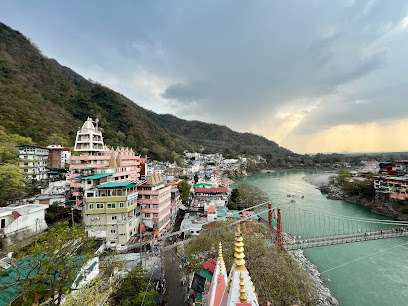
Terah Manzil Mandir : तेरह मंजिल मंदिर
Explore the serene Terah Manzil Mandir in Rishikesh, a captivating Hindu temple with breathtaking views and a rich spiritual ambiance.
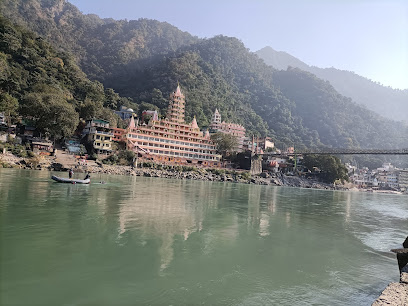
HimShail WaterFall
Discover the breathtaking beauty of HimShail Waterfall in Rishikesh, where nature's serenity meets adventure amidst lush landscapes.
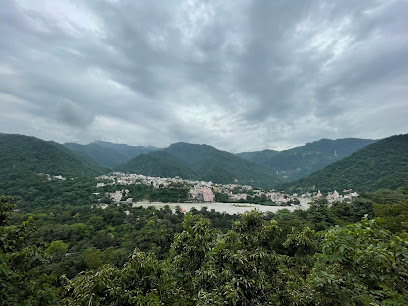
Ram Jhoola Ganga Ghat
Discover the tranquil beauty and spiritual essence of Ram Jhoola Ganga Ghat in Rishikesh, a must-visit destination for every traveler.

Rishikesh Ganga Arti Purnanand Ghat Janki Jhula
Immerse yourself in the spiritual ambiance of Rishikesh's Ganga Arti at Purnanand Ghat, where tradition meets tranquility along the sacred Ganges River.
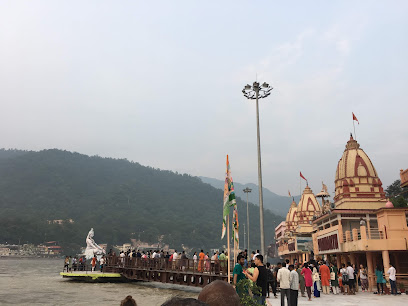
Essential places to dine
Chotiwala By The Ganges
Experience delightful vegetarian dining at Chotiwala By The Ganges in Rishikesh - where tradition meets taste amidst scenic beauty.
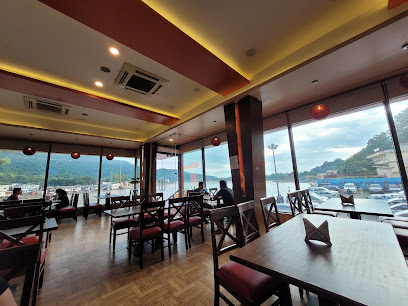
Bistro Nirvana
Experience unique Italian and Mexican flavors at Bistro Nirvana in Rishikesh - where delicious food meets breathtaking views.
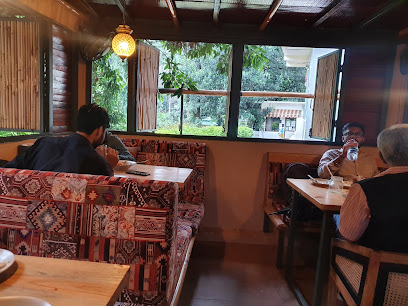
A Tavola Con Te - Restaurant In Rishikesh | Italian Restaurant In Rishikesh | Wood Fired Oven Pizza | Pizza Home Delivery
Savor authentic Italian cuisine at A Tavola Con Te in Rishikesh - home to delicious wood-fired pizzas and delightful vegetarian options.

Topiwala Restaurant
Discover Topiwala Restaurant in Rishikesh: A vegetarian delight offering breakfast and Chinese cuisine amidst spiritual serenity.

Soul Kitchen
Discover Soul Kitchen: A Vegan Delight in Rishikesh's Tranquil Surroundings Offering Wholesome Meals and Refreshing Juices.
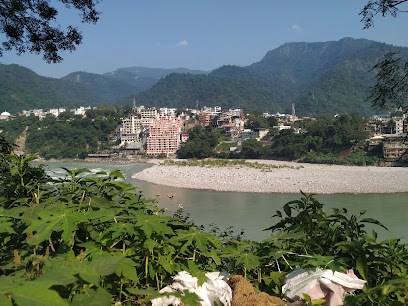
Purple Dhaba
Experience authentic North Indian vegetarian cuisine at Purple Dhaba in Rishikesh's vibrant Laxman Jhula area.
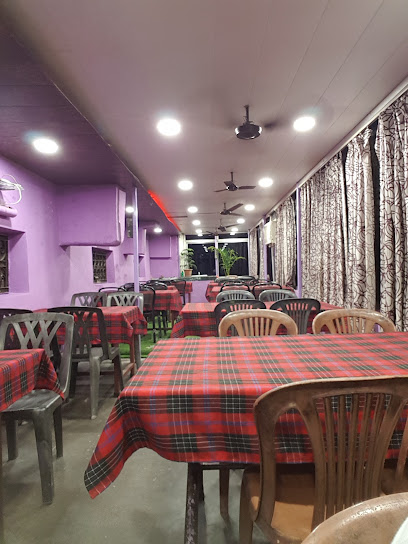
La Bella View Restro Café
Discover diverse flavors at La Bella View Restro Café in Rishikesh – where Italian meets Indian amidst breathtaking views.
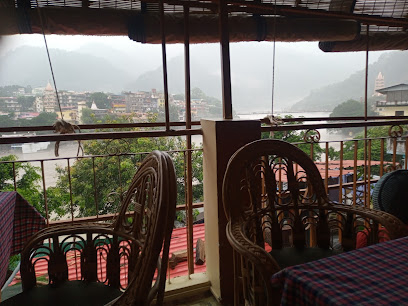
Momoza Cafe
Discover authentic Chinese vegetarian cuisine at Momoza Cafe in Rishikesh - where flavors meet tranquility amidst stunning river views.
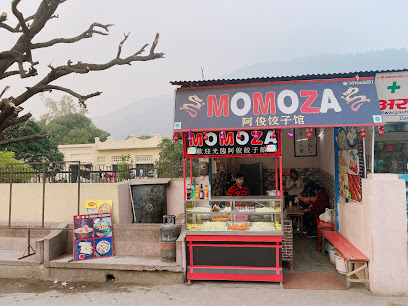
Deepak Restaurant
Experience authentic Indian cuisine at Deepak Restaurant in Rishikesh - where tradition meets taste amidst scenic views.

The Indian Plate
Experience authentic Indian cuisine at The Indian Plate in Rishikesh—where culinary delight meets serene surroundings.
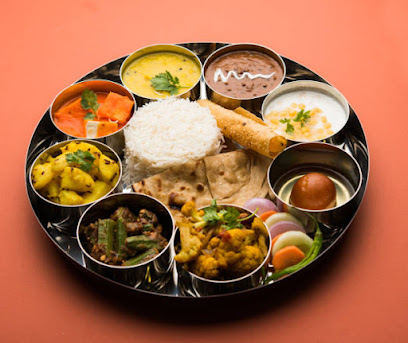
Markets, malls and hidden boutiques
Clothing store
Explore unique styles and vibrant fashion at Fashion Cafe in Rishikesh, a boutique that captures the spirit of this spiritual destination.
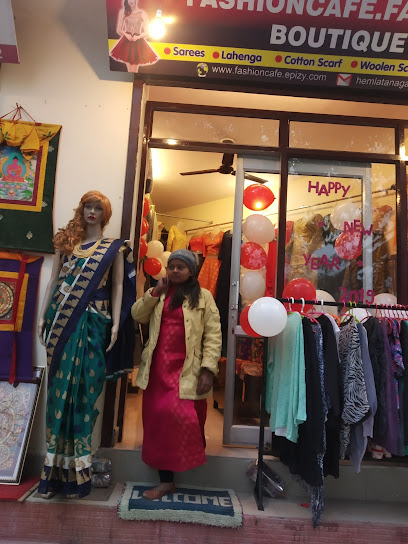
Shivananda Gift Centre
Discover the essence of Rishikesh at Shivananda Gift Centre, your one-stop shop for exquisite spiritual gifts and handicrafts.
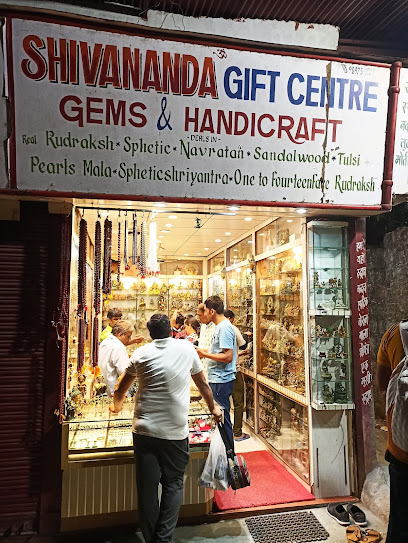
Ganga Mala Emporium
Explore the charm of Ganga Mala Emporium in Rishikesh, where every antique tells a story and reflects the rich Indian heritage.
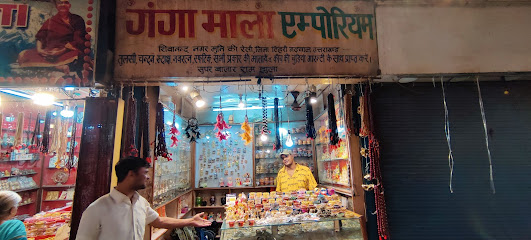
Forever handloom
Discover the artistry of handcrafted textiles at Forever Handloom in Rishikesh, where tradition meets vibrant creativity in every weave.
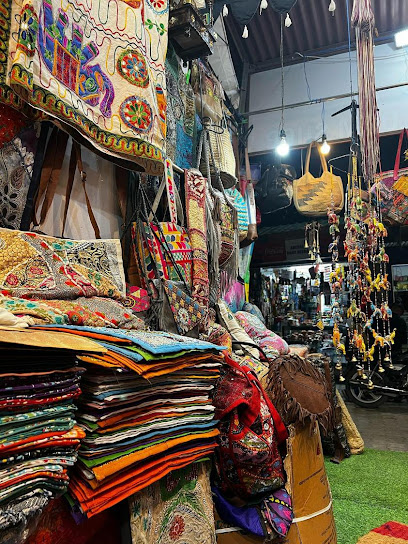
Himsagar Gift Center
Discover unique souvenirs and exquisite jewelry at Himsagar Gift Center in Rishikesh, a treasure trove of local artistry and craftsmanship.

Sushila General Store
Discover local treasures at Sushila General Store in Rishikesh, where authentic shopping meets the charm of Uttarakhand's culture.
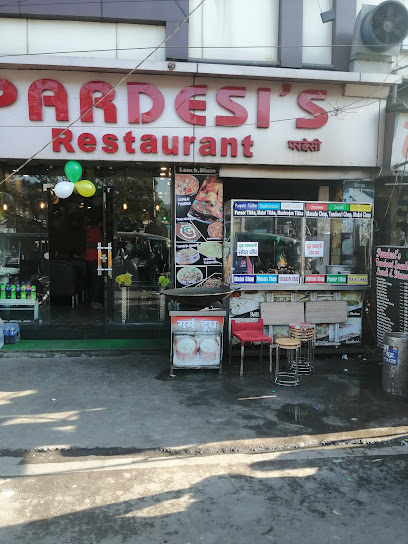
DIVINE SHOP
Discover unique gifts and trendy handbags at Divine Shop in Rishikesh, where local craftsmanship meets vibrant culture.

Rajkumar Handicraft
Explore the rich craftsmanship of Rajkumar Handicraft in Rishikesh, where traditional artistry meets breathtaking beauty in every handmade piece.
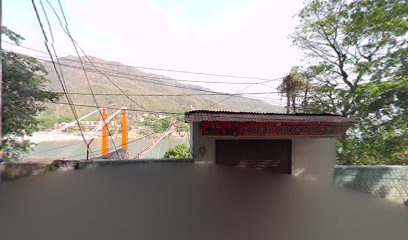
Mohit Handicraft
Explore Mohit Handicraft in Rishikesh for authentic handcrafted goods, showcasing the artistry and tradition of Indian craftsmanship.
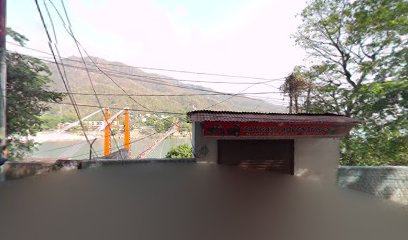
Sarishka Mart
Discover local treasures and essentials at Sarishka Mart, your go-to general store in the heart of Rishikesh near Ram Jhula.

Essential bars & hidden hideouts
Little Buddha Cafe
Discover the serene Little Buddha Cafe in Rishikesh, where delightful vegetarian dishes meet breathtaking views and a warm, welcoming atmosphere.

GANGA VIEW CAFE
Experience the tranquility of the Ganges at Ganga View Cafe, where delicious vegetarian and vegan cuisine meets stunning riverside views.

Pink Cafe Bar and Restaurant in Rishikesh
Discover the taste of Rishikesh at Pink Cafe Bar and Restaurant, where delicious cuisine meets a vibrant atmosphere for an unforgettable experience.

Cafe Royale Rishikesh (Coffee house and Restaurant)
Discover Café Royale Rishikesh, where exquisite vegetarian cuisine meets breathtaking views of the Ganges, perfect for food lovers and culture seekers.

Grill to Chill - Best Restaurant in Rishikesh, Best Bar in Rishikesh, Best Banquet Hall in Rishikesh, Hotel Room in Rishikesh
Discover Grill to Chill in Rishikesh – a perfect blend of delicious cuisine, vibrant bar atmosphere, and exquisite banquet facilities for all occasions.

SkyMax Lounge
Discover SkyMax Lounge in Rishikesh, where exquisite dining meets breathtaking views and adventure awaits at every turn.

The Verandah Bar
Discover relaxation and indulgence at The Verandah Bar in Rishikesh, where exquisite drinks meet serene surroundings for an unforgettable experience.

HIGH-SKY
Experience exquisite dining with breathtaking views at HIGH-SKY, a culinary gem in the heart of Rishikesh, Uttarakhand.

Junglee Bar
Discover the vibrant flavors and warm ambiance of Junglee Bar in Rishikesh, where culinary delights meet stunning natural beauty.
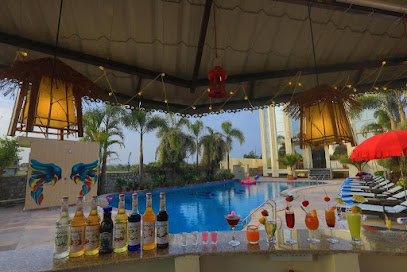
The Indian Plate
Discover authentic Indian flavors at The Indian Plate, a culinary gem near Ram Jhula in Rishikesh, Uttarakhand.

Local Phrases
-
- Helloनमस्ते
[namaste] - Goodbyeअलविदा
[alvida] - Yesहाँ
[haan] - Noनहीं
[nahi] - Please/You're welcomeकृपया
[krupaya] - Thank youधन्यवाद
[dhanyavad] - Excuse me/Sorryक्षमा करें
[kshama karein] - How are you?आपकैसे हैं?
[aap kaise hain?] - Fine. And you?ठीक हूँ। आप?
[theek hoon. aap?] - Do you speak English?क्या आप अंग्रेज़ी बोल सकते हैं?
[kya aap angrezi bol sakte hain?] - I don't understandमुझे समझ में नहीं आया
[mujhe samajh mein nahi aaya]
- Helloनमस्ते
-
- I'd like to see the menu, pleaseकृपया मेनू दिखाइए
[krupaya menu dikhaiye] - I don't eat meatमैं मांस नहीं खाता
[main maans nahi khaata] - Cheers!चियर्स!
[cheers!] - I would like to pay, pleaseकृपया मैं भुगतान करना चाहूँ
[krupaya main bhugtan karna chaahun]
- I'd like to see the menu, pleaseकृपया मेनू दिखाइए
-
- Help!बचाओ!
[bachao!] - Go away!चले जाओ!
[chale jao!] - Call the Police!पुलिस को बुलाओ!
[police ko bulaao!] - Call a doctor!डॉक्टर को बुलाओ!
[doctor ko bulaao!] - I'm lostमैं खो गया हूँ
[main kho gaya hoon] - I'm illमुझे बीमारी है
[mujhe bimari hai]
- Help!बचाओ!
-
- I'd like to buy...मैं खरीदना चाहूँगा...
[main khareedna chaahunga...] - I'm just lookingमैं बस देख रहा हूँ
[main bas dekh raha hoon] - How much is it?यह कितने का है?
[yah kitne ka hai?] - That's too expensiveयह बहुत महंगा है
[yah bahut mahnga hai] - Can you lower the price?क्या आप कीमत कम कर सकते हैं?
[kya aap keemat kam kar sakte hain?]
- I'd like to buy...मैं खरीदना चाहूँगा...
-
- What time is it?अब कितने बजे हैं?
[ab kitne baje hain?] - It's one o'clockएक बजे हैं
[ek baje hain] - Half past (10)दस बजकर पंद्रह मिनट
[das bajkar pandrah minute] - Morningसुबह
[subah] - Afternoonदोपहर
[dopahar] - Eveningशाम
[shaam] - Yesterdayकल
[kal] - Todayआज
[aaj] - Tomorrowकल
[kal] - 1एक
[ek] - 2दो
[do] - 3तीन
[teen] - 4चार
[chaar] - 5पाँच
[paanch] - 6छह
[chhah] - 7सात
[saat] - 8आठ
[aath] - 9नौ
[nau] - 10दस
[das]
- What time is it?अब कितने बजे हैं?
-
- Where's a/the...?कहाँ है...
[kahaan hai...] - What's the address?पता क्या है?
[pata kya hai?] - Can you show me (on the map)?क्या आप मुझे दिखा सकते हैं (नक्शे पर)?
[kya aap mujhe dikha sakte hain (nakshye par)?] - When's the next (bus)?अगली (बस) कब है?
[agli (bus) kab hai?] - A ticket (to ....)एक टिकट (के लिए ....)
[ek ticket (ke liye ....)]
- Where's a/the...?कहाँ है...
History of Ram Jhula
-
Ram Jhula, a suspension bridge built in 1986, serves not only as a vital link between the northern and southern banks of the Ganges River but also as a symbol of the spiritual journey. Named after Lord Rama, it embodies the reverence for Hindu mythology prevalent in Rishikesh, a town steeped in ancient traditions and spirituality.
-
Historically, Ram Jhula has been part of an essential pilgrimage route for devotees travelling to the sacred sites along the banks of the Ganges. The bridge connects various ashrams and temples, reinforcing Rishikesh's reputation as a significant center for spirituality and yoga in India.
-
Over the years, Ram Jhula has evolved into a cultural hub, attracting visitors from around the world. The area is home to numerous ashrams, such as the Swarg Ashram and the Sivananda Ashram, which contribute to the rich tapestry of yoga and meditation practices that define Rishikesh's identity.
-
The vicinity of Ram Jhula is alive with artistic expressions, especially during festivals like Ganga Dussehra and Maha Shivaratri. The vibrant celebrations reflect the deep connection the local community has with their spiritual practices, drawing crowds to witness rituals, music, and dance that celebrate the river Ganga.
-
In recent years, Ram Jhula has seen a blend of modernity and tradition, with local authorities emphasizing sustainable tourism. Efforts have been made to maintain the ecological integrity of the Ganges while promoting Rishikesh as a destination that balances spiritual heritage with contemporary attractions.
Ram Jhula Essentials
-
Ram Jhula is located in Rishikesh, approximately 5 kilometers from the main bus stand and railway station. You can reach Ram Jhula by taking a taxi or auto-rickshaw from either location. Buses frequently run from major cities like Haridwar and Dehradun to Rishikesh, and from there, local transport can take you to Ram Jhula. If you're coming from other neighborhoods within Rishikesh, walking or hiring a bicycle is a pleasant way to travel, as the area is pedestrian-friendly.
-
Ram Jhula is best explored on foot or by bicycle, as many attractions are within walking distance. Bicycle rentals are available at various shops. Auto-rickshaws and taxis can also be used for longer distances. Public buses connect Ram Jhula to other parts of Rishikesh, but schedules may vary, so it's advisable to check in advance.
-
Ram Jhula is generally a safe area for tourists, but standard precautions should be taken. Avoid walking alone at night in less crowded areas and always keep an eye on personal belongings. While there are no specific high-crime zones targeting tourists, petty theft can occur in crowded places, so be vigilant.
-
In case of an emergency, dial 100 for police assistance or 108 for ambulance services. Rishikesh has various hospitals and clinics, including the All India Institute of Medical Sciences (AIIMS). It is recommended to have travel insurance that covers medical emergencies. For minor issues, local pharmacies are available for over-the-counter medications.
-
Fashion: Do dress modestly, especially when visiting temples or religious sites. Avoid revealing clothing. Religion: Do respect local customs and traditions. Always remove shoes before entering temples. Public Transport: Do be courteous and offer your seat to the elderly. Don't eat or drink on public transport. Greetings: Do greet people with a smile and a nod. A simple 'Namaste' is appreciated. Eating & Drinking: Do try local vegetarian dishes and accept food offerings graciously. Don't waste food or refuse hospitality, as it is seen as impolite.
-
To experience Ram Jhula like a local, visit the small shops and stalls along the Ganges for unique handicrafts and souvenirs. Engage with local vendors to learn about their crafts and stories. Attend the Ganga Aarti ceremony at Trimbakeshwar Temple for a truly local experience. Take time to explore the quieter paths along the riverbank for stunning views and a peaceful atmosphere.
Nearby Cities to Ram Jhula
-
Things To Do in Shimla
-
Things To Do in Delhi
-
Things To Do in Manali
-
Things To Do in Agra
-
Things To Do in Amritsar
-
Things To Do in Lahore
-
Things To Do in Jaipur
-
Things To Do in Gwalior
-
Things To Do in Jammu
-
Things To Do in Lucknow
-
Things To Do in Sialkot
-
Things To Do in Leh
-
Things To Do in Kanpur
-
Things To Do in Gujranwala
-
Things To Do in Ranthambore











